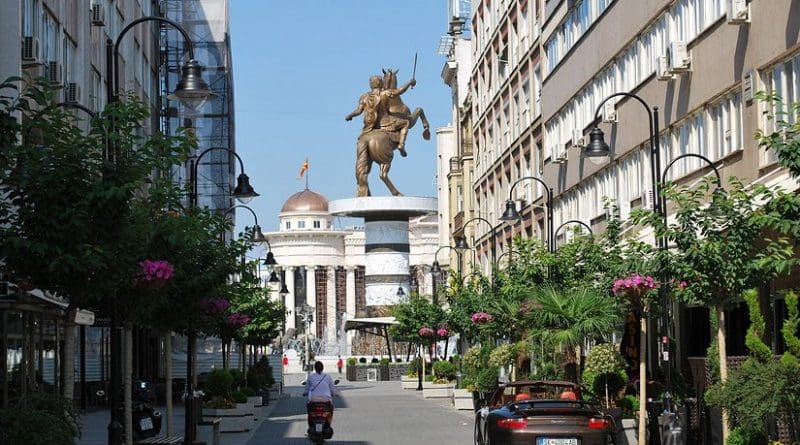Macedonia Opposition Calls Court Ruling A Trap
By Sinisa Jakov Marusic
Macedonia’s main opposition party says it will not be provoked into quitting talks on the EU-brokered crisis deal by the recent court ruling about tapes of officials’ conversations.
The Social Democrats’ vice-president, Radmila Shekerinska, said Monday’s ruling of the Skopje Criminal Court, which said tapes provided by the opposition cannot be used as evidence in court, was a provocation aimed at forcing them to quit talks on the EU-brokered crisis deal signed in June.
She said Macdonia’s main ruling party was the real actor behind the court decision.
“VMRO DPMNE is making this move… to force the opposition to leave the process while at the same time they won’t be held responsible for it. We will not give them a cheap exit from the negotiations,” she told Telma TV.
The inter-party talks are supposed to iron out the details about implementing the deal brokered by European Commissioner Johannes Hahn. As part of the deal, the opposition on Tuesday returned to parliament, ending a 15-month boycott.
Shekerinska said the first real test of whether the VMRO DPMNE party of Prime Minister Nikola Gruevski was sincere about fulfilling the crisis deal would be the election of a new special prosecutor with authority to investigate claims about illegal interceptions of communications.
The deadline for the appointment has been set at September 15.
“Our goal is to do everything possible by September 15 to get a real special prosecutor, autonomous, strong, with instruments and power, who can independently conduct investigations. If that does not happen, there will be no dilemma that the government is the one responsible for it… Then, everyone will conclude that this deal cannot be put in effect because of VMRO DPMNE’s refusal,” she said.
Shekerinska said that, in that case, “all options are open,” referring to the party’s recent statement that the opposition won’t hesitate to resume the publication of more tapes and even leave parliament again if there is no deal on the prosecutor.
The Skopje Criminal Court ruling came just two weeks before the deadline for the new prosecutor’s appointment.
It said the tapes of officials’ conversations released by the opposition were invalid as court evidence because they were “illegally obtained”.
The tapes, which the opposition have been releasing since February, appeared to reveal the government’s direct involvement in election fraud and abuse of the justice system and media.
They suggested the Prime Minister’s involvement in illegal purchase of construction land among other wrongdoings and also suggested the authorities covered up the murder of a young man by a police officer.
The Social Democrats say the tapes show that Gruevski and his cousin, former secret police chief Saso Mijalkov, were behind the illegal surveillance of some 20,000 people, including government ministers.
Gruevski, who has been in power since 2006, has insisted that the compromising tapes in question were “created” by unnamed foreign intelligence services and given to the opposition to destabilise the country.
The crisis agreement also stipulated the appointment of new Interior and Labour ministers from the ranks of the opposition as well as resignation of Gruevski in mid-December, 100 days before the snap elections set for April.
Other outstanding issues envisaged by the agreement include a revision of the electoral law and measures to ensure unbiased media reporting of the campaign.

